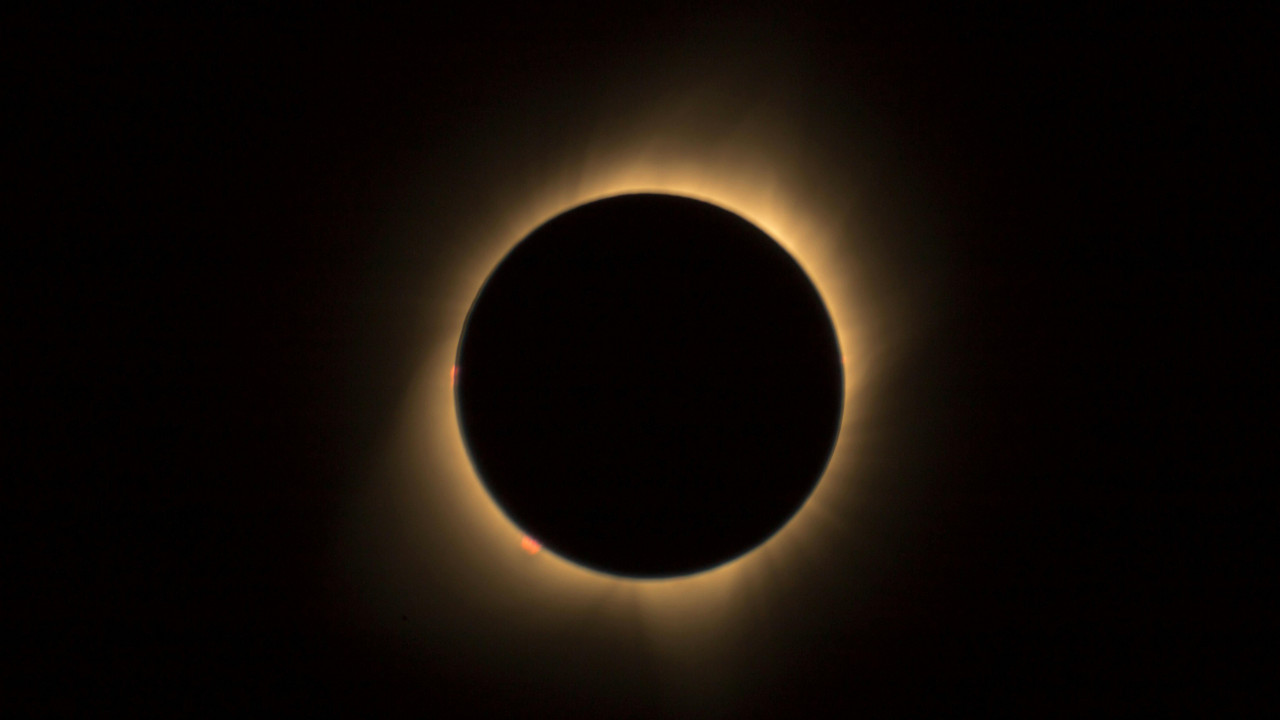Keep your sights on safety during April 8 eclipse

St. Joseph’s ophthalmologist has vital insights for avoiding eye damage during solar eclipse
London, Ontario – It’s the event almost everyone is watching – but anyone viewing the April 8 solar eclipse should do so only with some serious eye protection, says leading ophthalmologist Dr. Phil Hooper of St. Joseph’s Health Care London (St. Joseph’s).
“Even a brief, unprotected glance at the sun during this time can lead to irreversible eye damage and vision loss,” says Dr. Hooper, a retinal-surgery specialist at the nationally renowned Ivey Eye Institute at St. Joseph’s, and President of the Canadian Ophthalmological Society. “We know this is an exciting time, but we want to make sure Canadians who view the eclipse take precautions to keep themselves safe.”
Next month’s solar eclipse is one of the most anticipated in decades because it covers a huge swath of North America’s most populous areas, including Southern Ontario. This region will experience the eclipse for approximately two hours, with deep twilight taking place for about three minutes starting at 3:17 p.m. as the Moon covers our view of the Sun.
“A solar eclipse can be once-in-a-lifetime experience,” Dr. Hooper says. “We just don’t want it to have lifelong consequences.”
Our retinas, located at the backs of our eyes, transmit visual signals through the optic nerve to our brain. But retinas have no pain receptors – and that means even a quick, unprotected look at the eclipse can burn a crescent-sized hole in the eye’s macular tissue before any symptoms start. This damage, called solar retinopathy, can be permanent.
It’s essential to take eye-safety precautions if watching the solar eclipse, Dr. Hooper emphasizes:
- Protect your eyes at all times using safe solar-viewing glasses or a safe, handheld solar viewer that complies with the ISO 12312-2 international standard.
- Make sure the glasses are not torn, scratched or otherwise damaged before use.
- Do not look at the sun through a camera lens, telescope, binoculars or any other optical device while wearing eclipse glasses or using a handheld solar viewer, as the concentrated solar rays will burn through the filter and can cause serious eye injury.
- Always supervise children using solar viewers.
Symptoms of solar retinopathy include blurry vision and/or vision loss in the center of your sight and/or eye pain.
If you are experiencing any symptoms that might indicate damage from viewing the solar eclipse, see an eye care professional right away. Most symptoms improve on their own within a few months, but vision changes that persist six months after the injury may be permanent.
-30-
Dr. Phil Hooper, ophthalmologist at Ivey Eye Institute and president of the Canadian Ophthalmological Society, is available to speak to media the afternoons of March 26 and March 27.
For more information and to arrange an interview, contact:
Debora (Flaherty) Van Brenk, Communication Consultant
St. Joseph’s Health Care London
519 646-6100 ext. 47560, Cell 519 318-0657
@email
About St. Joseph’s Health Care London
Renowned for compassionate care, St. Joseph’s Health Care London is a leading academic health care centre in Canada dedicated to helping people live to their fullest by minimizing the effects of injury, disease and disability through excellence in care, teaching and research. Through partnership with Lawson Health Research Institute and our collaborative engagement with other health care and academic partners, St. Joseph’s has become an international leader in the areas of chronic disease management; medical imaging; specialized mental health care; rehabilitation and specialized geriatrics; and surgery. St. Joseph’s operates through a wide range of hospital, clinic and long-term and community-based settings, including: St. Joseph’s Hospital; Parkwood Institute; Mount Hope Centre for Long Term Care; and the Southwest Centre for Forensic Mental Health Care. sjhc.london.on.ca.
